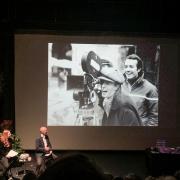After receiving the backing of the Prince’s Countryside Trust, Women in Rural Enterprise are looking to expand their network of support groups across the county to ensure that women are given the best chance to help their business ventures grow

“Scratch the surface of any rural landscape, and you’ll find that it is alive with enterprise,” explained Women in Rural Enterprise (WiRE) director Polly Gibb. “WiRE came about after research at Harper Adams University in Shropshire into farm diversification found that, in 90% of cases, it was the women on farms who were diversifying and driving the new businesses forward.” But what the study also discovered was that most of these women were isolated and often lacked confidence and so a conference was organised to discuss this.
“Nearly 500 people came to the conference, which we weren’t expecting. Word then spread, and Prince Charles became aware of our work,” said Polly, who received an OBE for her services to rural enterprise in last year’s New Year’s Honours list. The rest, as they say, is history and the WiRE network has continued to grow across the country. Now with the backing of the Prince’s Countryside Fund WiRE is looking to help establish even more groups across the country. It also has some big ideas for our county and the wheels are already in motion for a new Dorset-wide WiRE network, as well as smaller localised groups.
“There are currently about 60 groups around the country, which may sound like a lot, but there are still quite a few gaps,” added Polly. “We have a very strong desire to support every rural woman, irrespective of where they are and what their business is.” Fundamentally there are two sides to WiRE. Their website is one aspect of this and provides help, advice and information on business growth and development and how women can get the most out of it. It also provides a platform for each member to promote their business on there, and make contact with other women in similar areas of business.
The other side stemmed from a desire to do something on the ground right across the country. “Women are very good at gathering together the energy in our communities and making things happen,” said Polly. “With this in mind we came up with the idea of having volunteer run groups at a local level to bring women in business together. What these local groups do is achieve on the ground networking in villages and outlying areas, which is self sustaining.”
Each group is headed by a network leader who receives training and support from WiRE. The leader is responsible for organising a monthly meeting on a different topic, usually organised around a speaker who will come along and give a short presentation on a business topic.
“The groups provide somewhere for women to meet other businesswomen who are in a very similar situation to themselves. Running a small business on your own can make you feel quite isolated. The groups provide a space to talk about your business and discover how others are managing theirs. The package of training, networking and building relationships that WiRE provides is really helpful and the amount of expertise that gets exchanged in these groups is incredible.
“Women’s businesses are very important to the rural economy. We have members from businesses in pretty much every sector; we have people designing and producing children’s clothes, we have a woman who has set up a florists but only deals with British flowers all year round, and we also have graphic designers and solicitors making up our membership. It really is all encompassing.”
In fact on the WiRE website you will find a huge range of businesses started by their members ranging from lavender growers and life coaches to lingerie designers and gallery owners. All have been helped by WiRE to get their rural business up and running.
The experience of diversifying a family farm and embarking upon a brand new business journey is one that is very familiar to Mary Pengelly, whose family run a 450 acre arable and sheep farm in its own secret wooded valley two miles from Chesil Beach. In the late 1990s Mary drove the future of the farm forward by exploring ways of diversifying Gorwell Farm.
“The obvious thing for us was to use the buildings that we had and offer self-catering holiday cottages,” explained Mary. “We are very fortunate in our location, in that we can offer a quiet location for people to get away from everything for a break but still be close enough to three major towns, and the Jurassic Coast.”
However finding a support network of other women in a similar situation during the initial set-up phase of the new business wasn’t easy for Mary, which led her to establish a local WiRE group in West Dorset for other businesses nearby.
“I think there are a lot of benefits to having a localised WiRE group in West Dorset,” said Mary. “It offers a forum for women who are in business, where they can network and exchange ideas relevant to the West Dorset landscape. By looking at different businesses it gives you a broader approach to things and not only in the area of your own expertise. I have contact with other WiRE groups in Stafford, for example and it’s interesting to look at what they are doing and some of the ideas they have come up with. By being a women-only group you can understand problems that other women in business might be having; it’s all about being comfortable in your own space as well as being open to new ideas.”
Mary is hoping that the newly established West Dorset WiRE group will be able to offer talks on things that are both relevant and current to local businesses and spread the word through Social Media. “I need to improve my Twitter presence and learn how I put videos on my website for example. We all need to look at planning for the future financial implications of our businesses and all of this can be achieved with the group. Focussing on a single element at each meeting really concentrates the mind. For example you could have a planning meeting where everyone comes along and talks about what they’re going to do in the next 12 months – this all provides a focus time away from the distractions of everyday life.”
The effort to establish new groups in Dorset hasn’t gone unnoticed at WiRE HQ at Harper Adams University in Shropshire. They are hugely supportive of these ventures and with backing from the Prince’s Countryside Fund it is hoped that more new groups will be up and running in the not too distant future. “I think it’s a really exciting time to be setting up a small business,” added Polly. “We’ve had tough times but that all provides opportunity and our members are fantastic at taking advantage of any opportunities that arise and the groups offer the perfect environment for these women to flourish.”
-----------------------------------------------------
Women in Rural Enterprise (WiRE)
Women in Rural Enterprise is based at Harper Adams University in Shropshire and has networks across the UK. WiRE has been offering business support and training to women in rural business since 1996 and now has around 6000 entrepreneurs across the UK. It provides support through its online community and also through local on-the-ground networking groups which enable women in business to meet and share their expertise, seek help and advice and learn new skills. WiRE is relaunching its groups in Dorset this year and is eager to hear from women in any rural businesses who would like to get involved. For more information on WiRE visit wireuk.org, call 01952 815338 or email info@wireuk.org. To get involved with West Dorset WiRE contact Mary Pengelly on 01305 871401 or email mary@gorwellfarm.co.uk.
-----------------------------------------------------
What is The Prince’s Countryside Fund?
The Prince’s Countryside Fund (PCF) awards grants to projects that support people who care for the countryside. Set up by HRH, The Prince of Wales in 2010 its mission is to secure a sustainable future for our countryside by supporting the UK’s rural communities, British agriculture and the wider rural economy. It aims to do this by tackling five key issues: rural isolation; low farming incomes; decline of rural communities; lack of access to training and disconnection with the countryside.
Over the last three years the Fund has donated £3.3million in grants, supported over 70 projects across the UK and helped more than 52,000 people. These include rural transport schemes, setting up village shops, supporting 50 village pubs and developing business units for locals. On the agricultural front they have helped 2,346 farm businesses, working directly with farmers to improve efficiency and supporting projects that offer farmers the opportunity to diversify and generate new income streams. They have also helped 489 rural enterprises through their support of innovative rural business projects such as Women in Rural Enterprise.
Looking towards nuturing the countryside guardians of the future, the PCF has also helped 2,022 young people by supporting projects offering training opportunities, apprenticeship programmes and training days and given some 9,000 school children access to farms or helped them learn about farming in school.
The Fund has also given over £600,000 in emergency funding to Farming Help charities, providing immediate financial support in times of crisis like the recent poor weather and the extensive flooding of farmland and farms in the southwest.
The Prince’s Countryside Fund is managed by Business in the Community and over 90p of every pound donated is given in grants directly to projects that they know can make a difference.



























